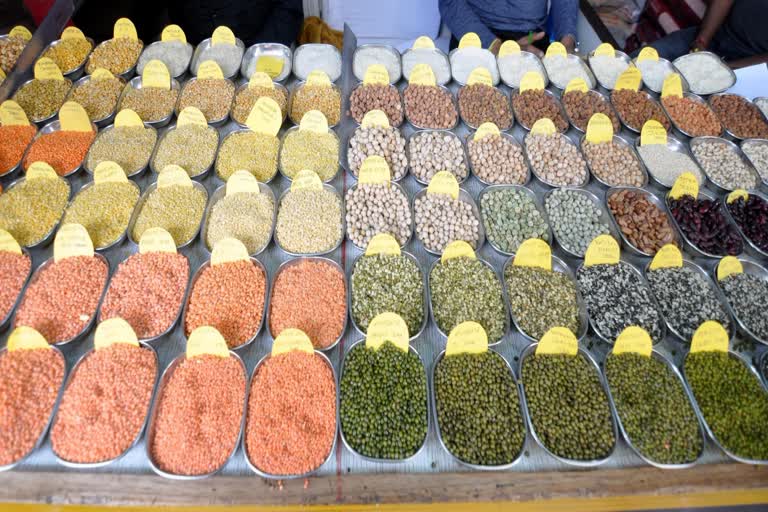New Delhi: The government on Wednesday decided to offload 8.47 lakh tonne of pulses from its buffer stock and will sell foodgrain to states at market price to boost domestic availability and ensure stability in prices.
The average prices of pulses are ruling at Rs 60-95 per kg in major cities, but maximum rate of urad is as high as Rs 140 per kg in some parts of India.
"The Department of Consumer Affairs that maintains buffer stock of pulses for the Union government under the Price Stabilisation Mechanism has offered about 8.5 lakh tonne of pulses to state governments at average market rates," an official statement said.
The decision in this regard was taken during a meeting chaired by Consumer Affairs Secretary Avinash Srivastava to review prices and availability of pulses across the nation.
"The purpose is to ensure an increased overall availability of pulses in the market across India and also to ensure that prices remain stable," the statement said.
Read more:Average wealth expectancy of affluent Indians is just Rs 3.6 crore: Report
The Centre has offered 3.2 lakh tonne of tur (arhar), 2 lakh tonne of urad, 1.2 lakh tonne of chana, 1.5 lakh tonne of moong and 57,000 tonne of masoor.
According to the ministry data, the average price of chana is ruling at Rs 65 per kg, tur Rs 85 per kg, urad Rs 95 per kg, moong Rs 85 per kg and masoor Rs 60 per kg across major cities. However, the maximum rate of chana is Rs 88, tur Rs 110, urad Rs 140, moong Rs 120 and masoor Rs 100 per kg.
Commenting on the government's decision, India Pulses and Grains Association (IPGA) Chairman Jitu Bheda said: "While IPGA welcomes this deliberation, only stocks of urad which is selling above MSP (minimum support price) should be released from the buffer stock. All other pulses are selling below MSP and therefore buffer stocks of these should not be liquidated."
The government should consider relaxing import norms for urad, Bheda added.



